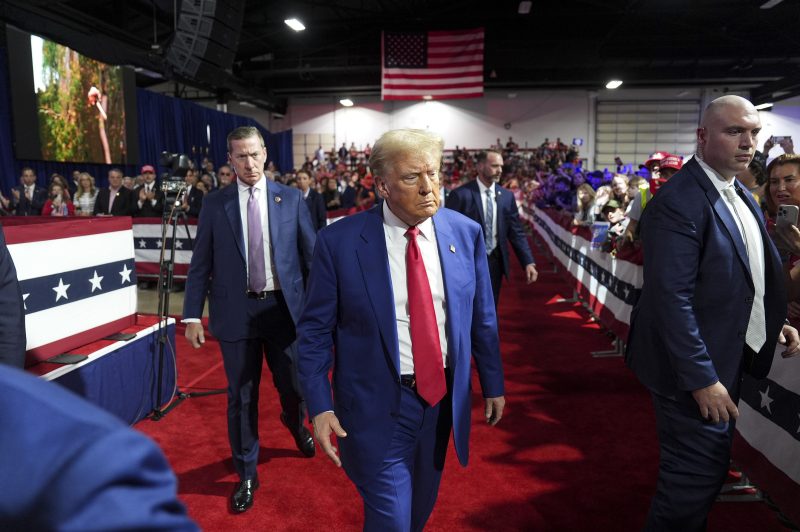In a recent controversial statement, former President Donald Trump has faced criticism for drawing parallels between the prosecution of individuals involved in the January 6 Capitol riot and the treatment of Japanese Americans during World War II. This comparison has stirred up a heated debate, with many pointing out the stark differences between the two events and the potentially harmful implications of trivializing the historical trauma experienced by Japanese Americans.
Trump’s remarks were made during an interview with historian Douglas Brinkley, where he likened the legal proceedings against the January 6 defendants to the wartime internment of Japanese Americans. This comparison has been widely condemned, with critics arguing that such a comparison is not only misguided but also minimizes the severity of the internment camp experience.
The internment of Japanese Americans during World War II remains a dark chapter in American history, characterized by the forced relocation and imprisonment of over 120,000 individuals, many of whom were American citizens. Families were torn apart, livelihoods were destroyed, and individuals were subjected to severe hardship and discrimination based solely on their ancestry. The internment camps were a profound violation of civil liberties and human rights, causing long-lasting trauma and intergenerational effects.
The events of January 6, on the other hand, involved a violent attack on the U.S. Capitol by a pro-Trump mob seeking to overturn the results of the 2020 presidential election. The riot resulted in multiple deaths, injuries, and significant damage to the Capitol building. The attackers were not acting on the basis of their ethnicity or ancestry but rather in support of a political leader who promoted baseless claims of election fraud.
Drawing a parallel between the two situations ignores the fundamental differences in context, scale, and intent. The comparison is not only historically inaccurate but also risks minimizing the gravity of the Capitol riot and the threat it posed to American democracy. By equating the legal consequences faced by the January 6 defendants with the internment of Japanese Americans, Trump’s remarks risk downplaying the severity of both events and disregarding the unique historical significance of the internment camps.
Furthermore, the comparison has been met with strong criticism from advocates for Japanese American communities, who highlight the ongoing impact of the internment experience on individuals and families. To compare this deeply traumatic episode in American history to a violent insurrection aimed at undermining the democratic process is seen as insensitive and ahistorical.
In conclusion, while it is important to critically examine and learn from past injustices such as the internment of Japanese Americans, it is crucial to do so with respect for the lived experiences of those affected by such events. Drawing misguided parallels between unrelated events risks trivializing the suffering of marginalized communities and distorting historical truths. Trump’s comparison between the January 6 defendants and Japanese American internment serves as a stark reminder of the importance of understanding history accurately and sensitively.

